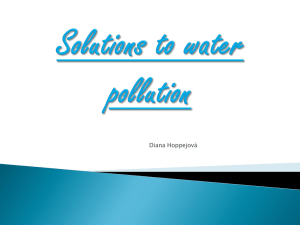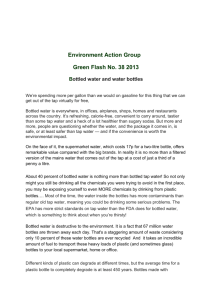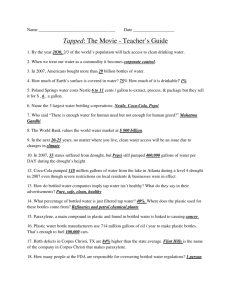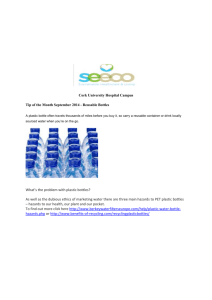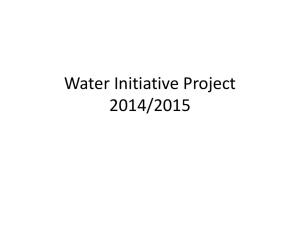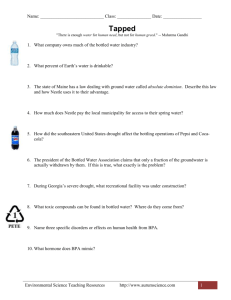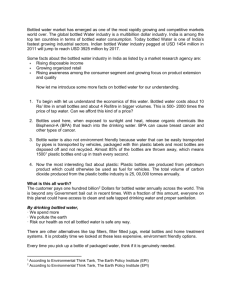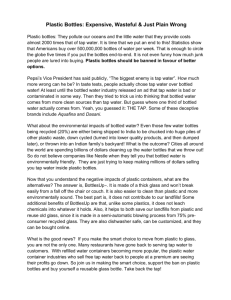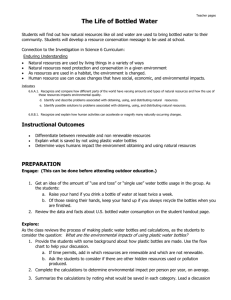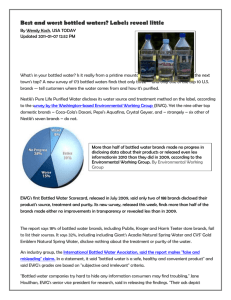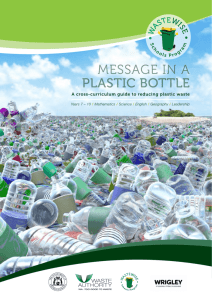municipal bottles
advertisement
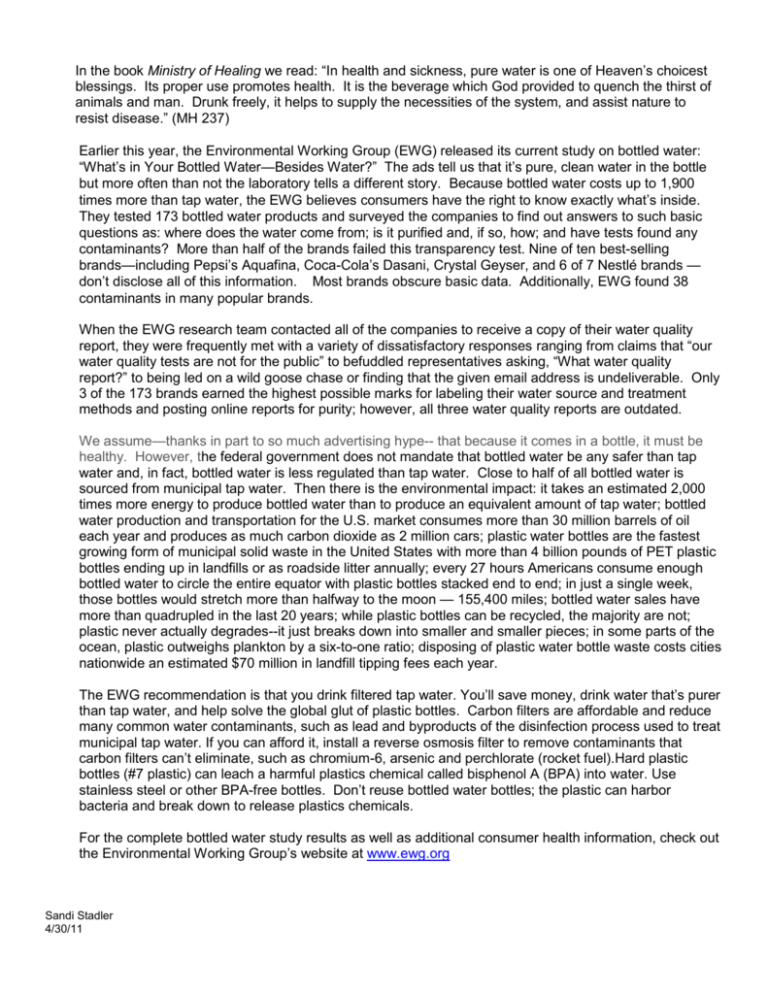
In the book Ministry of Healing we read: “In health and sickness, pure water is one of Heaven’s choicest blessings. Its proper use promotes health. It is the beverage which God provided to quench the thirst of animals and man. Drunk freely, it helps to supply the necessities of the system, and assist nature to resist disease.” (MH 237) Earlier this year, the Environmental Working Group (EWG) released its current study on bottled water: “What’s in Your Bottled Water—Besides Water?” The ads tell us that it’s pure, clean water in the bottle but more often than not the laboratory tells a different story. Because bottled water costs up to 1,900 times more than tap water, the EWG believes consumers have the right to know exactly what’s inside. They tested 173 bottled water products and surveyed the companies to find out answers to such basic questions as: where does the water come from; is it purified and, if so, how; and have tests found any contaminants? More than half of the brands failed this transparency test. Nine of ten best-selling brands—including Pepsi’s Aquafina, Coca-Cola’s Dasani, Crystal Geyser, and 6 of 7 Nestlé brands — don’t disclose all of this information. Most brands obscure basic data. Additionally, EWG found 38 contaminants in many popular brands. When the EWG research team contacted all of the companies to receive a copy of their water quality report, they were frequently met with a variety of dissatisfactory responses ranging from claims that “our water quality tests are not for the public” to befuddled representatives asking, “What water quality report?” to being led on a wild goose chase or finding that the given email address is undeliverable. Only 3 of the 173 brands earned the highest possible marks for labeling their water source and treatment methods and posting online reports for purity; however, all three water quality reports are outdated. We assume—thanks in part to so much advertising hype-- that because it comes in a bottle, it must be healthy. However, the federal government does not mandate that bottled water be any safer than tap water and, in fact, bottled water is less regulated than tap water. Close to half of all bottled water is sourced from municipal tap water. Then there is the environmental impact: it takes an estimated 2,000 times more energy to produce bottled water than to produce an equivalent amount of tap water; bottled water production and transportation for the U.S. market consumes more than 30 million barrels of oil each year and produces as much carbon dioxide as 2 million cars; plastic water bottles are the fastest growing form of municipal solid waste in the United States with more than 4 billion pounds of PET plastic bottles ending up in landfills or as roadside litter annually; every 27 hours Americans consume enough bottled water to circle the entire equator with plastic bottles stacked end to end; in just a single week, those bottles would stretch more than halfway to the moon — 155,400 miles; bottled water sales have more than quadrupled in the last 20 years; while plastic bottles can be recycled, the majority are not; plastic never actually degrades--it just breaks down into smaller and smaller pieces; in some parts of the ocean, plastic outweighs plankton by a six-to-one ratio; disposing of plastic water bottle waste costs cities nationwide an estimated $70 million in landfill tipping fees each year. The EWG recommendation is that you drink filtered tap water. You’ll save money, drink water that’s purer than tap water, and help solve the global glut of plastic bottles. Carbon filters are affordable and reduce many common water contaminants, such as lead and byproducts of the disinfection process used to treat municipal tap water. If you can afford it, install a reverse osmosis filter to remove contaminants that carbon filters can’t eliminate, such as chromium-6, arsenic and perchlorate (rocket fuel).Hard plastic bottles (#7 plastic) can leach a harmful plastics chemical called bisphenol A (BPA) into water. Use stainless steel or other BPA-free bottles. Don’t reuse bottled water bottles; the plastic can harbor bacteria and break down to release plastics chemicals. For the complete bottled water study results as well as additional consumer health information, check out the Environmental Working Group’s website at www.ewg.org Sandi Stadler 4/30/11
